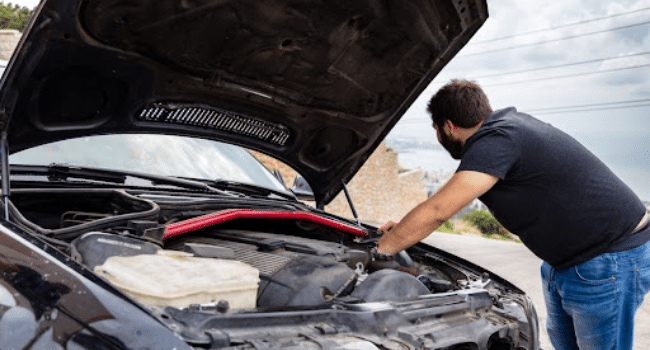Table of Contents
Understand Your Options for a Damaged Car
If your car has been damaged in a car accident, you will be faced with some tough decisions about what to do moving forward. Insurance companies have specific rules that they enforce when it comes to damaged cars. It’s crucial that you understand your options for a damaged car. If you’re still shopping around for the right car insurance, you can use car insurance calculators in ontario for your reference.
Damaged cars and totaled cars are not always going to be able to go back on the road, but you also might not get enough of a payoff to buy a new car. What happens next? Let’s talk about what to do when your vehicle is damaged.
Damaged vs. Totaled: What’s the Difference?
Many drivers are confused after an accident when their car doesn’t seem too badly damaged, but the insurance company comes back and declares the vehicle a total loss. After filing an accident claim, total loss is not what drivers like to hear.
“Total loss” is how insurance companies declare that a car is totaled. This decision is made when the cost to repair a vehicle is higher than the car’s actual cash value (ACV) when the accident occurred. They can also declare a car totaled if it will be unsafe to drive even when repaired.
ACV is something that many drivers are not familiar with. Car value depreciates incredibly quickly. New cars lose value when they leave the lot and continue to depreciate over time.
Cars that are somewhat damaged but can be repaired without spending more than the car’s value will be repaired, but others will not be. In the eyes of the insurance company, repairing the vehicle would be a financial waste.
Totaled Vehicle: What’s Next?
What happens if your car is declared total?
States each have a total loss formula that the insurance company must use to determine the “total loss” point and what will be paid out. Many states say that cars must be totaled whenever the repair cost is 75% or more than the car’s actual value, but that threshold varies.
To get an idea of the car’s value and the threshold, you can utilize a totaled car value calculator. This will help you start to plan. Once you’ve found out the car is totaled, here’s what to consider doing next:
Option 1: Get a Pay Out
The first thing you can do is simply accept the payout from the insurance company. The insurance company may allow you to replace your car with a comparable vehicle, or they may give you the cash payment to do so. The offerings can vary by state due to differences in state regulations.
If you still owe money on a previous loan, the insurance company will pay the lender first. Any remaining payout will then be sent to you.
Not all insurance claims will go smoothly. Sometimes you will have to negotiate with car insurance adjusters to get a better value for your totaled car.
Option 2: Keep It
Despite what it sounds like, a totaled car is not always undrivable. Totaled is a term used as a decision-maker on the financial insurance front, but that doesn’t always line up with drivability.
Typically, you will have the option to keep your car. You can keep driving it if it is safe to do so, or you can have it repaired. When taking this option, the insurance company will subtract the junk value of your car from any payout.
However, keep in mind that some states will require the car to be called totaled until it is approved for being driven on the road again. This means that you will not always be able to simply keep driving the car as some damage causes unnecessary risk. Review your state’s policies before choosing to keep driving your totaled vehicle.
Option 3: Sell It
Finally, you could keep your car and sell it yourself for parts or repair. Once again, the insurance company will keep their calculated junk value of the car before providing any payout. You can then sell the car to a junkyard or by part for yourself, which may allow you to get more of a payout.
Moving on From Car Accidents
Once you have handled the fallout from a car accident, you might be unsure what to do moving forward besides avoiding car accidents. If you haven’t been immediately able to replace your car, you might seek out a new car loan with a provider that will allow you to roll any leftover car loan balance into your new loan.
Alternatively, it might be time to find a temporary car to rent or lease until you can save up for a new car.
Handling the effects of a car accident isn’t easy. However, now that you’re more informed, you will be better prepared to move through the process.
Read more on KulFiy
